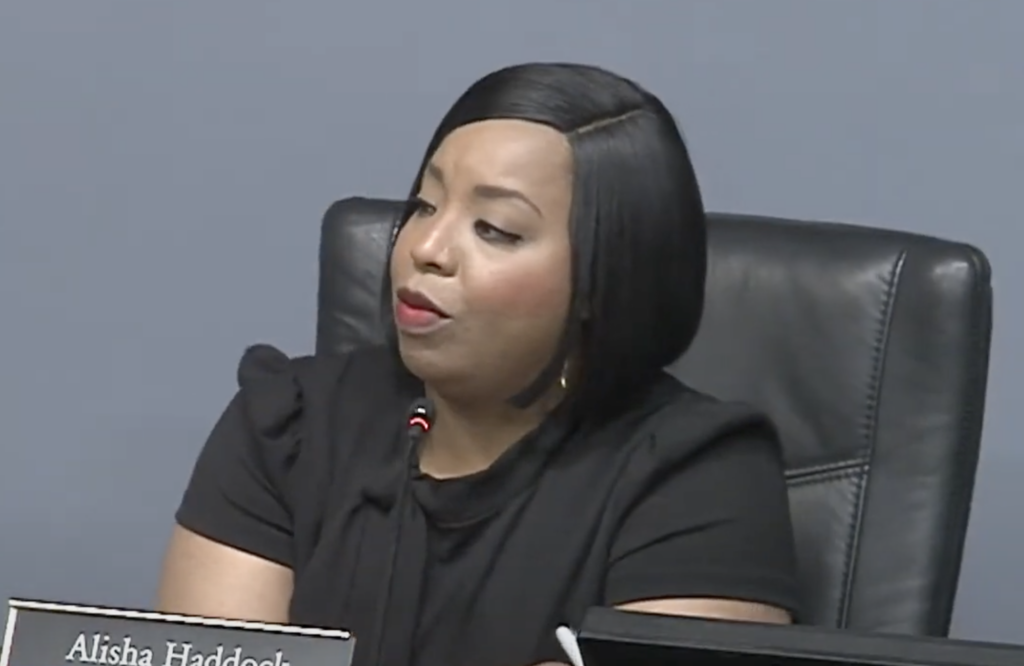
A retired Nashville police lieutenant has claimed that at least two high-ranking MNPD officials worked to overturn the city’s Community Oversight Board — and the department’s top leadership knew about it.
Garet Davidson describes attending an Office of Professional Accountability Division meeting in which a Nashville deputy police chief was presented with a laser-engraved crystal award for his work on a Tennessee state law prohibiting community oversight boards, which independently investigate police misconduct.
“I’m deeply troubled by the implication that you have a law enforcement agency going behind closed doors to help take part in legislative efforts to create (state) law to overturn local law to help enforce accountability on that same organization,” he said in an interview with WPLN.
Davidson began his career with MNPD in 2011. From 2021 to 2024, he served as the lieutenant of the Office of Professional Accountability, better known as internal affairs. Earlier this year, he took early retirement, published a fantasy novel and now hosts a podcast.
On May 22, 2024, Davidson filed a detailed, 61-page complaint, which describes a pattern of misconduct at the highest levels of Nashville’s police department. The document contains dozens of instances of misconduct Davidson claims to have witnessed during his time with the OPA, including leadership overreach in internal investigations and a culture of permissiveness of harassment and discrimination.
More: Listen to WPLN’s past series on MNPD, “Behind the Blue Wall”
However, he said the Community Oversight Board issue was the “straw that broke the camel’s back.”
In 2023, the Tennessee legislature passed a new law abolishing community oversight boards and replacing them with less-powerful community review boards.
That law primarily affected Nashville, which got its COB after a 2018 referendum. More than 130,000 Nashvillians voted to establish a community oversight board as a way to increase police accountability following the police killings of Jocques Clemmons in 2017 and Daniel Hambrick earlier that year. The measure won by a 20% margin citywide, and it won a majority in 29 of 35 Metro Council districts. After the new law went into effect, it was replaced by a less-powerful review board.
Last week, Nashville’s Community Review Board held an emergency meeting to address Davidson’s complaint.
Alisha Haddock, who is a member of the board, said that these allegations are fundamentally about a board that Nashvillians voted into existence.
“It is about people respecting what we’ve voted for,” she said. “This is a unique opportunity for us to really set the tone on how we view our voting rights and how we look at oversight and accountability in Nashville.”
Haddock said that the complaint will likely delay ongoing negotiations for a Memorandum of Understanding, or MOA, between the board and MNPD.
“We were ready to send over our first draft (of the MOA), and then, some of the people who would have been sitting in the room with us have been named in the complaint,” she said. “So that is very problematic for us.”
Metro’s legal department has brought in independent, outside counsel to investigate Davidson’s full complaint. Ed Stanton is a Memphis-based attorney who specializes in internal investigations. He previously served as the U.S. Attorney for the Western District of Tennessee after being nominated by then-President Barack Obama.
Metro Legal Director Wally Dietz said that Stanton will work with the Metro Community Review Board, the Metro Human Relations Investigations team, and Lieutenant Jerry Hertenstein with MNPD’s Office of Professional Accountability. However, he clarified that Stanton will ultimately lead the investigation.
“Those resources are available to him, but he is in charge,” said Dietz.

